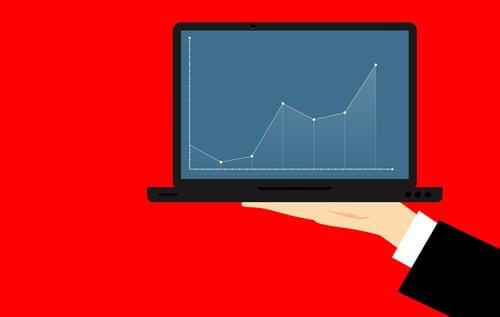Leadership at Tableau, one of the world’s largest data visualization tools, unveiled innovations to its platform at the Tableau Conference 2022 (TC22) on May 17. I was able to speak directly with executive-level professionals while attending TC22 to learn in detail about the features of these new tools, which include Tableau Cloud, Accelerators, Model, and Data Stories.
These new tools aim to better address unmet needs across a variety of industries. For example, increasing the rate at which data improves business outcomes, delivering insights to non-technical audiences, and tackling company challenges that data scientists are too busy to address.
The key to business is speed
Tableau CEO Mark Nelson stated the key to business is speed, and Tableau Cloud makes this a reality by accelerating the pace at which companies achieve ROI following the implementation of data analytics tools. In fact, according to Nelson, cloud computing is so important to modern-day business users that 70% of new customers are purchasing the Tableau Cloud option.
The availability of prebuilt dashboards called Accelerators is part of the drive toward the cloud. Accelerators provide templates that address issues solved by data across industries, effectively allowing businesses to get started with projects after just seconds of going live on the cloud. Accelerators also have implications for public accountability.
Nelson discussed Tableau client JetBlue’s goal to make its environmental impact data fully available to the public. It accomplished this by downloading an Accelerator from the cloud and embedding dashboards onto its website using the cloud’s prewritten HTML code. With just a few clicks, JetBlue was able to go live with its environmental impact data to bolster the company’s commitment toward transparency and sustainability.
Doing the work you’re too busy to do
Tableau also announced the launch of Data Stories and Model. These tools use machine learning to quickly provide insights and reports that technical workers may be too busy to do without assistance.
Data Stories uses natural language generation to provide a written analysis of the data being displayed in a dashboard. It’s no secret that technical workers often struggle to translate complex statistical information into actionable insights for business audiences. With the assistance of machine learning algorithms, Tableau hopes to remediate this issue by manually generating content that contextualizes data.
Also, Tableau Model is an autoML tool that hopes to increase the efficiency of technical workers by automating the process of building predictive models. Tableau Model aims to solve the issue of ordinary business intelligence projects going unsolved because data scientists are too occupied with mission-critical and highly complex projects. The tool is aimed toward less advanced technical users such as data analysts who understand the fundamentals of machine learning and, thus, can be trusted to handle less dire and exploratory machine learning projects. This new functionality is the product of resources made available through working with Einstein at Salesforce, the customer relationship management platform that acquired Tableau in 2019.
How G2 can help you leverage data to improve business performance
G2’s website houses dozens of analytics and artificial intelligence software categories. The Analytics Platforms category, for example, contains over 200 different business intelligence tools and has a G2 Grid® to help you choose the right software for visualizing and analyzing company data.
If you’re instead looking for a robust platform for building predictive models, the Data Science and Machine Learning Platforms category includes market leaders such as MATLAB and 170 other products that assist data scientists in building machine learning models.

Edited by Sinchana Mistry


 by Anthony Orso
by Anthony Orso
 by Anthony Orso
by Anthony Orso
 by Anthony Orso
by Anthony Orso